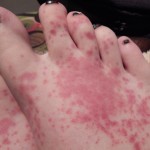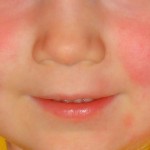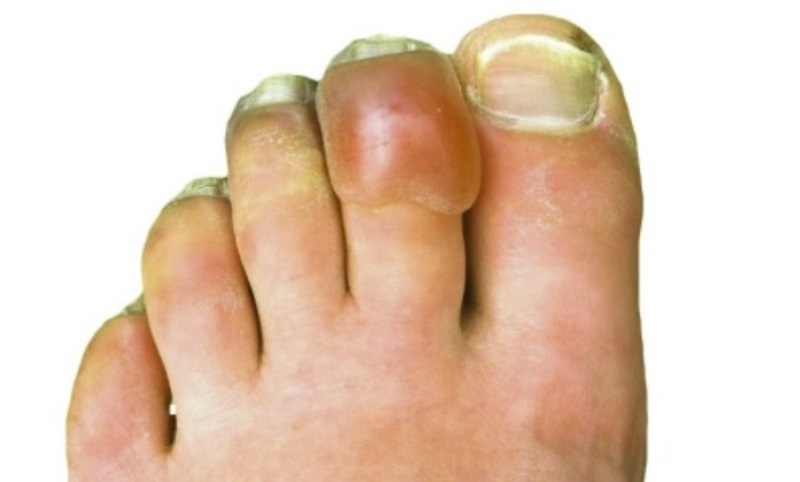A food allergy occurs when a certain food item that you consume, is mistaken by your immune system as something harmful for your body. To combat this perceived threat, your body releases antibodies, so that the threat can be neutralized. This is when allergic symptoms manifest.
Suggested read: 12 amazingly effective home remedies for skin rashes
Symptoms of food allergies

Image source: Google, copyright-free image under Creative Commons License
An allergic reaction could manifest on any part of the body. While some allergic reactions are restricted to just one body part, others may manifest on larger areas or multiple body systems. Plus, how an allergen reacts may also vary from one person to another. In very rare cases, anaphylaxis – a severe, potentially life-threatening allergic reaction – may occur. In such cases, it’s imperative that medical attention is sought immediately.
The most common symptoms of an allergic reaction include:
- On the skin: redness, itching, rashes, hives, or blisters
- Upper respiratory system: wheezing, coughing, tightness in the chest, difficulty in breathing
- Head and face: swelling of eyes, lips, ears, throat, and face
- Redness in the eyes
- Nose: uncontrollable sneezing, nasal congestion, runny nose
- Stomach: diarrhea, vomiting, nausea, and abdominal pain
Causes of allergies
Food allergies are caused by consuming certain foods. Let’s take a look at some of the most common causes of food allergy:
- Peanuts
- Eggs
- Milk
- Tree nuts
- Shellfish
- Corn
- Soy
- Strawberries
- Tree nuts
- Wheat
NOTE: Food allergies are a result of an immune response, while food intolerances are due to the response of the digestive system.
Home remedies for food allergy
Anyone can develop a food allergy, and it could happen anywhere, any time. Therefore, it’s necessary to take certain steps to prevent allergic reactions, and treat them successfully when they do occur.
The first thing you need to do when you’re having an allergic reaction is to try and keep away from allergens. If you know you’re allergic to a food item, it’s better to stay away from it. But the key is to identify the foods that may cause an allergic reaction. Once you do, it should be easy enough to eliminate it from your diet.
It’s best to identify the source of the allergic reaction. To do that, note down everything you ate or drank in the 2 to 3 days prior to the manifestation of the symptoms. Narrow down to those foods that were new to your digestive system. Till your condition improves, avoid these foods completely. Once you’ve recovered fully, you can reintroduce these foods and be on the lookout for the same symptoms again. If they persist, then it’s best to avoid them completely.
Here are some home remedies for food allergy that might come handy:
1. Apple cider vinegar

Image source: Google, copyright-free image under Creative Commons License
Apple cider vinegar possesses anti-inflammatory and anti-histamine properties, which make it perfect to combat food allergies. Not only does it help restore several nutrients in the body, it also helps regular the body’s immune response. Plus, it restores the body’s natural pH balance as well.
Remedy
- Stir in 1 tablespoon of raw, unfiltered apple cider vinegar to a glass of warm water. To this, add 1 teaspoon each of lemon juice and honey as well. Stir well and drink this twice or thrice every day till you feel better.
2. Castor oil
Castor oil is an excellent home remedy for food allergy, as it can help improve your stomach’s strength and resistance to various food items. This, in turn, helps ease the gastrointestinal symptoms of the food allergy.
Remedy
- Stir in half teaspoon of castor oil in a glass of fruit (any) juice, vegetable juice, or plain water. Drink this concoction on an empty stomach in the morning. Repeat this remedy every day for a few days till you see improvement in your condition.
Suggested read: 15 super effective home remedies for an upset stomach
3. Eating fruits and vegetables rich in vitamin C
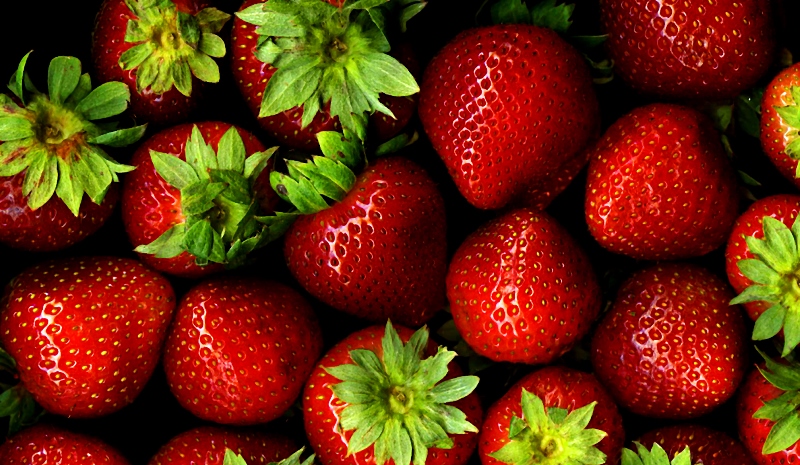
Image source: Google, copyright-free image under Creative Commons License
Vitamin C is an antioxidant, which helps boost your immune system. Also, it helps prevent the formation of histamine, while also removing toxins from the body.
Remedies
- Eat fruits and vegetables rich in vitamin C, like oranges, grapefruit, kiwi, strawberries, tomatoes, lemons, bell peppers, broccoli, and sprouts. However, be sure that you’re not allergic to any of these first, before consuming.
- Ingest vitamin C supplements every day, but only once you’ve consulted a doctor.
4. Garlic
Garlic contains a certain compound, which is a natural antihistamine, which is very effective in treating food allergies. Plus, it possesses anti-inflammatory, antibiotic, and antioxidant properties, which help reduce allergic symptoms, while promoting a quick recovery.
Remedies
- Peel and slice 2 – 3 garlic cloves, and chew them raw every day to fight the various allergic symptoms.
- Ingesting garlic supplements is another option, but only once you’ve consulted a doctor.
5. Ginger
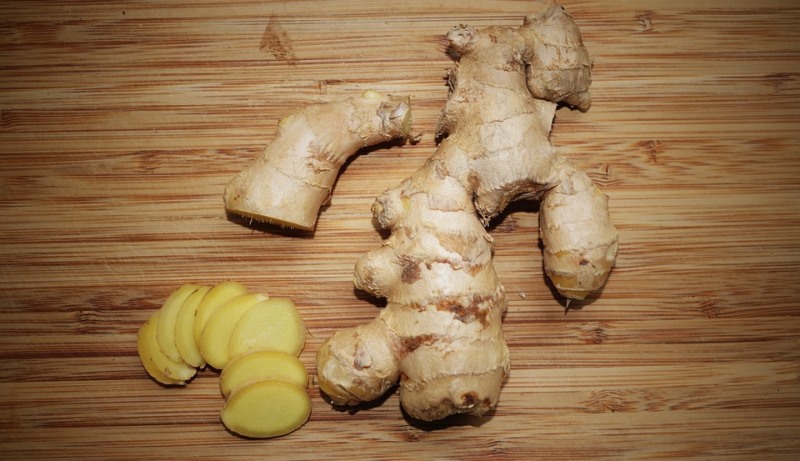
Image source: Pixabay, under Creative Commons License
Ginger is one of the best foods to treat many gastrointestinal discomforts, including food allergies. It contains anti-inflammatory, anti-bacterial, and antioxidant properties, that can help ease nausea, vomiting, digestive spasms, diarrhea, and indigestion.
Remedies
- Slice a few inches of fresh ginger and put it into 2 cups of water. Bring this to a boil, simmering it for about 10 minutes. Allow it to cool down a bit, and then add a bit of honey for taste to the strained liquid. Drink this warm tea to help soothe your stomach and get relief from your food allergy reactions.
- Extract the juice from fresh ginger. Take 1 teaspoon of this juice and add a bit of honey to make it more palatable. Drink this before your meals to improve your digestion.
6. Green tea
Green tea is perhaps one of the lesser known remedies for treating stomach symptoms caused due to food allergies. It contains anti-inflammatory, anti-histamine, and antioxidant properties, which help ease the symptoms of the allergic reactions and promote a health digestive system, while also boosting your immune system.
Remedy
- Make green tea using loose powder or a teabag. Add honey and lemon to make it more palatable, and drink it 3 or 4 times a day through the day to ease food allergy symptoms.
7. Lemon

Image source: Google, copyright-free image under Creative Commons License
Lemon is a rich source of vitamin C, and it has immune-boosting properties, which can prevent food allergies, as well as treat the symptoms. It also helps flush out the toxins in your system, keeping your body healthy.
Remedy
- Squeeze and extract the juice of 1 lemon, and stir this into a cup of warm water. Now, add some honey to this and stir well. Drink this on an empty stomach first thing every morning, followed by a few times through the day. Repeat this for a few days, till the symptoms subside.
8. Probiotic foods
Consuming probiotic foods is recommended to ease the symptoms of a food allergy. They contain plenty of ‘good’ bacteria, which restore the natural balance of your gut, while also treating digestive problems. These foods also help boost your immune system.
Remedies
- Yogurt is one of the best probiotic foods there is. Eat 2 to 3 cups of plain, unsweetened yogurt every day to help ease the symptoms of the allergic reaction.
- Kimchi, tempeh, sauerkraut – are other probiotic foods that help ease the symptoms of allergic reactions.
9. Stinging nettle
Stinging nettle possesses anti-inflammatory and anti-histamine properties, which make it ideal in treating food allergies, among other kinds of allergies. It help ease the allergic symptoms like sneezing, skin rashes, nausea, runny nose, and stomach pain.
Remedies
- Add 1 tablespoon of dried stinging nettle leaf powder to a cup of hot water. Cover it with a lid, letting it steep for about 5 minutes. To the strained solution, add a bit of honey to make it more palatable, and drink it twice or thrice a day, until your symptoms subside.
- Once you’ve consulted a doctor, you can even ingest stinging nettle capsules.
Suggested read: All you need to know about dehydration and how to treat it with home remedies
Additional tips
- Drink water at regular intervals to keep yourself hydrated.
- Take Epsom salt baths to ease skin rashes.
- Vitamin E boosts your body’s immune response, so consuming vitamin E-rich foods is a good bet.
- Acupuncture and acupressure are known to help improve the immune system responses.
- For mild skin rashes due to food allergy, take cool showers.
These are all the things you need to know about the natural home remedies for food allergy, and how to treat such an allergic reaction. If the symptoms persist, then it’s time to seek professional medical help.
Featured image source: Google, copyright-free image under Creative Commons License



